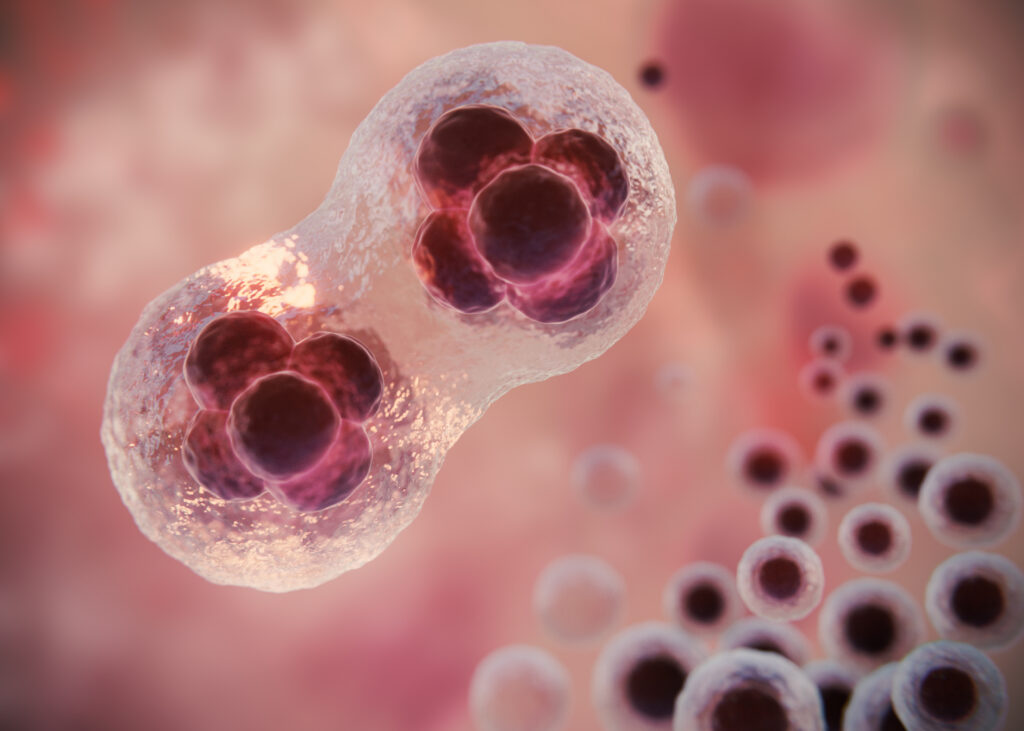#5 Will Shock You: 5 Sneaky Ways You Could Be Harming Your Stem Cells Without Even Realizing It!
When you get a cut, your body heals itself over time. You don’t have to tell it consciously; it just knows what to do. This miraculous ability to repair is largely driven by stem cells.
But did you know these cells are responsible for much more than healing cuts?
They repair organs, regenerate tissues, and are vital to maintaining your overall health. By understanding and nurturing stem cells, you can improve prevention and recovery from diseases, slow aging, and unlock your innate regenerative abilities of the body.
Did you know that each one of us is built up of stem cells? Yes, stem cells are the building blocks of our bodies! Present in every organ and tissue, these have the remarkable ability to develop into various cell types. Our immune system relies heavily on these versatile cells for optimal functioning.
Stem cells play a pivotal role in the formation and maintenance of organs. In fact, when the sperm meets the egg, it’s not just the start of a new life but also the combined work of stem cells and angiogenesis (the formation of blood vessels) to create the structure of a fetus. The real marvel of stem cells becomes apparent when the body signals the need for repair.
Stored in the bones, these cells rush like a swarm of bees out of your bone marrow to the site of damage, whether it’s a wound, organ dysfunction, or inflammation. It’s a natural repair mechanism that occurs daily within our bodies. While a robust immune system is essential, it’s the quality of stem cells that determines our body’s ability to repair and regenerate.
Can we generate more stem cells or maintain the health of the stem cells we already have?
Absolutely.
How and Where Are These Stem Cells?
Stem cells are capable of developing into many different types of cells. When the sperm and egg come together during conception, they form a single fertilized cell called a zygote. This cell is totipotent, meaning it has the ability to develop into any cell type forming all the tissues and organs of the body needed to create a complete organism.
As the embryo begins to develop and cells divide, these cells gradually become pluripotent. This means they are still capable of developing into a variety of cell types, but now they are more specialized. For example, a pluripotent stem cell might become a heart cell, a muscle cell, or a liver cell, but it won’t become a completely different type of cell, like a stomach cell, because the cell is now destined to contribute to specific organs and tissues.

To understand this, let’s take the example of a liver cell. A liver cell will only ever become a liver cell because it has already specialized in that function. It has the genetic instructions to build the liver, but it cannot transform into a stomach cell, which is a completely different tissue with distinct functions. This specialization ensures that each cell contributes to the proper organ and structure.
Thus, the journey from totipotency in the zygote to pluripotency in the developing embryo ensures that while the body is built from a single, powerful cell, each specialized cell knows exactly where it should go and what it should become to contribute to the whole organism.
Now, in adulthood, your body still houses stem cells in specific areas like bone marrow, fat, and blood. They are always on standby, ready to repair damage, whether it’s a broken bone, an injured ligament, or even wear and tear from aging.
Every organ in your body, from your liver to your skin, is maintained by stem cells. Without them, even the most efficient immune system wouldn’t be able to repair damage. For instance:
- Liver cells regenerate every 150–500 days.
- Skin cells renew every two to three weeks.
- Red blood cells regenerate every four months.
This ongoing regeneration is why you heal, grow, and stay alive. However, this system isn’t foolproof. Poor lifestyle choices, aging, and chronic diseases can reduce the quantity and quality of stem cells, compromising your body’s ability to repair and regenerate.
Five Habits That Unknowingly Weaken Our Stem Cells
As we know our stem cells are vital for tissue repair, immune defense, and overall health, but certain habits and conditions can significantly weaken their function. Here are five major factors to watch out for:
- Smoking and Passive Smoking
Smoking is among the most detrimental habits for stem cell health. It not only reduces their ability to repair tissues but also weakens immunity, leaving the body more vulnerable to infections and diseases.
Even passive exposure to smoke has severe consequences, increasing the risk of chronic conditions such as cancer, heart disease, and diabetes. Avoiding both active and secondhand smoke is needed to protect your stem cells and overall health.

2. Excessive Alcohol Consumption
Heavy drinking takes a toll on stem cells, particularly in the liver. When excessive alcohol use impairs liver stem cell function, it can result in severe conditions like cirrhosis. In such cases, the ability of the liver to regenerate itself is compromised, leading to irreversible damage. Moderation or abstaining is key to ensuring your stem cells can perform their regenerative duties effectively.
3. Chemotherapy and Radiation
While chemotherapy and radiation are lifesaving cancer treatments, they come with a downside: they destroy healthy stem cells alongside cancer cells. This damage can lead to lasting side effects such as nerve pain, muscle weakness, and slower tissue repair. This is why lifestyle and food are so important.
That’s why focusing on lifestyle and nutrition is so crucial. As part of our protocol when working with cancer clients, we prioritize managing these side effects to support the body’s natural healing processes and enhance overall well-being.
Nutrient-rich foods provide the building blocks for stem cell repair and regeneration. Antioxidants from fruits and vegetables help combat oxidative stress caused by these treatments. Healthy fats and proteins support the recovery of tissues and energy levels and regular physical activity improves circulation, aiding the delivery of nutrients to damaged tissues.
4. Low HDL (Good Cholesterol)
High-density lipoprotein (HDL), often called ‘good cholesterol,’ protects stem cells. HDL reduces inflammation and oxidative stress, helping maintain the ability of the body to repair heart and vascular tissues. Low HDL levels hinder these protective effects, increasing the risk of heart disease and slowing recovery from vascular injuries. Heart-healthy foods and regular exercise are vital to maintaining optimal HDL levels.
5. Uncontrolled Diabetes
Chronically high blood sugar levels in diabetes cause widespread damage to blood vessels and stem cells. This can result in severe complications, such as slow-healing ulcers, kidney failure, and impaired wound healing. Effective blood sugar management through nutrition, exercise, and medication not only protects your stem cells but also reduces the risk of long-term complications.
Foods That Regenerate Stem Cells
Your food plays one of the most important roles in supporting stem cell health and regeneration. Certain foods are packed with nutrients and bioactive compounds that promote tissue repair, reduce inflammation, and enhance the natural ability of the body to heal itself.
Below are a selection of top foods to include:
- Fruits: Apples, kiwi, pomegranates, blueberries, and cranberries.
- Vegetables: Eggplants, celery, carrots, and bell peppers.
- Herbs and Spices: Turmeric, oregano, and thyme.
- Drinks: Green tea, black tea (unsweetened and without milk), and pure black coffee.
- Nuts and Seeds: Almonds, walnuts, and pistachios.
- Other Superfoods: Bamboo shoots, raw cacao (found in dark chocolate), and non-GMO soy.

Lifestyle Changes to Boost Stem Cell Health
In addition to eating the right foods, adopting a few key lifestyle habits can significantly enhance your stem cell health and overall well-being:
- Prioritize Quality Sleep: Sleep is essential for stem cell repair and regeneration. Aim for 7–8 hours of uninterrupted sleep each night to prevent stem cell depletion and support recovery.
- Manage Stress: Chronic stress hinders stem cell production and function. Incorporate stress-reducing activities like meditation, deep breathing, or yoga into your daily routine to protect your stem cells.
- Stay Physically Active: Regular exercise improves blood flow, helping stem cells reach damaged tissues more efficiently. However, avoid overtraining, as insufficient recovery can strain your body and weaken stem cell activity.
- Reduce Toxin Exposure: Limit contact with pollutants, processed foods, and unnecessary medications, as they can harm stem cells and reduce their effectiveness. Opt for natural, toxin-free alternatives whenever possible.
- Maintain a Balanced Meal: Avoid extreme or restrictive meal plans that exclude entire food groups. A balanced plate rich in nutrients supports both immunity and stem cell regeneration, ensuring your body has the resources it needs to heal.

Stem cell activity peaks in youth and declines with age. By the time you reach your 40s or 50s, the depletion becomes noticeable in slower recovery rates and more prolonged illnesses. Injuries to low-blood-supply tissues like cartilage and tendons are hard to heal.
But at the same time, your body is designed to heal itself, and stem cells are responsible. By eating the right foods, avoiding harmful habits, and living a balanced lifestyle, you can maintain and even regenerate stem cells. Your journey to better health starts with a single choice.
Disclaimer: This blog is for informational and educational purposes only. The content is not intended as a substitute for professional medical advice, diagnosis, or treatment. Always consult your physician or a qualified healthcare provider with any questions you may have regarding a medical condition or treatment. The recommendations and opinions expressed are based on current research but may not be suitable for everyone.
Take the first step toward revitalizing your health today.
Join our Wellness Program and invest in your health TODAY!
Schedule a one-on-one consultation with our experts by calling us at 1800 102 0253 or emailing us at consults@lukecoutinho.com.
|
From a pimple to cancer, our You Care Wellness Program helps you find a way Talk to our integrative team of experts today 18001020253 |










Leave a Reply